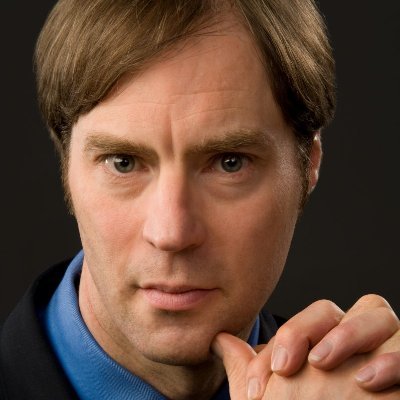Event Engages, Challenges Princeton Students
By Leah Smith, Princeton ’20
In the spring semester, Christian Union NOVA at Princeton University hosted a lecture with Dr. Stephen C. Meyer, director of the Discovery Institute’s Center for Science and Culture in Seattle. Meyer, who received his Ph.D. in the philosophy of science from the University of Cambridge, helped students—both Christians and seekers—understand particular attributes of God: His creation, His omniscience, and His centrality to the story of the natural world.

The lecture by the renowned scientist included an opportunity for attendees to ask questions and receive a free copy of his latest book, The Return of the God Hypothesis: Three Scientific Discoveries that Reveal the Mind Behind the Universe. Dr. Meyer is also the author of the New York Times’ best seller Darwin's Doubt: The Explosive Origin of Animal Life and the Case for Intelligent Design.
“How many of you are some kind of STEM major?” Dr. Meyer asked, with a significant number of hands raised. To those students, he discussed the nature of STEM classrooms today, their hostility towards believers, and their rationality towards science as the explanation of life without God. Dr. Meyer presented a narrative of the origins of science and its theological understandings, while also noting when science began to adopt a self-justifiable existence without God.
Dr. Meyer illuminated the scientifically-proven continual expansion of universe, and how it points to an origin story. He also pointed out contradictions in the science-atheist argument, and specifically tackled flaws in Darwinian origin evolution. “How ironic,” he said, “that creation speaks out against its maker, arguing about its very creation.”
 Dr. Stephen C. MeyerTo those curious about cellular life, and living organisms, Meyer explained the ways DNA points to God: “Cells have a digital code. And that is DNA. Directing the construction of protein-based molecular machines is an unbelievably sophisticated information storage transmission and processing technology in every living cell for every living organism…Who can explain the origin of this information?” Meyer noted how—when people imagine science without the centrality of theism—they cannot explain such levels of biological organization, and thus use conspiracy theories to fill in the gaps.
Dr. Stephen C. MeyerTo those curious about cellular life, and living organisms, Meyer explained the ways DNA points to God: “Cells have a digital code. And that is DNA. Directing the construction of protein-based molecular machines is an unbelievably sophisticated information storage transmission and processing technology in every living cell for every living organism…Who can explain the origin of this information?” Meyer noted how—when people imagine science without the centrality of theism—they cannot explain such levels of biological organization, and thus use conspiracy theories to fill in the gaps.
"Where do you think these specifics come from?...everything is just the right odds. In physics, in Einstein’s equation…gravity, expansion, the speed of light. God is omniscient, and very purposeful with his creation.”
Overall, Dr. Meyer’s lecture left many thinking critically about the ways they absorb scientific knowledge, and it encouraged attendees to invite a Godly narrative into their everyday learning. His dynamic and persuasive speaking left many a student on their own journey to rationalizing God for themselves. But more so than just speaking of a God of highly-ordered systems, reverent power, and cosmological origins, Dr. Meyer left the audience with an invitation to know the personal God—the God of intentionality, who created them. And that is more than number, rationality, and science can offer anyone.
To learn more about Christian Union's ministry at some of the nation's most influential universities, please click here.












